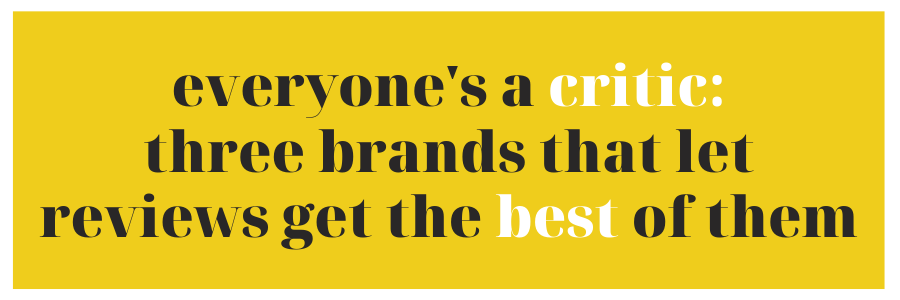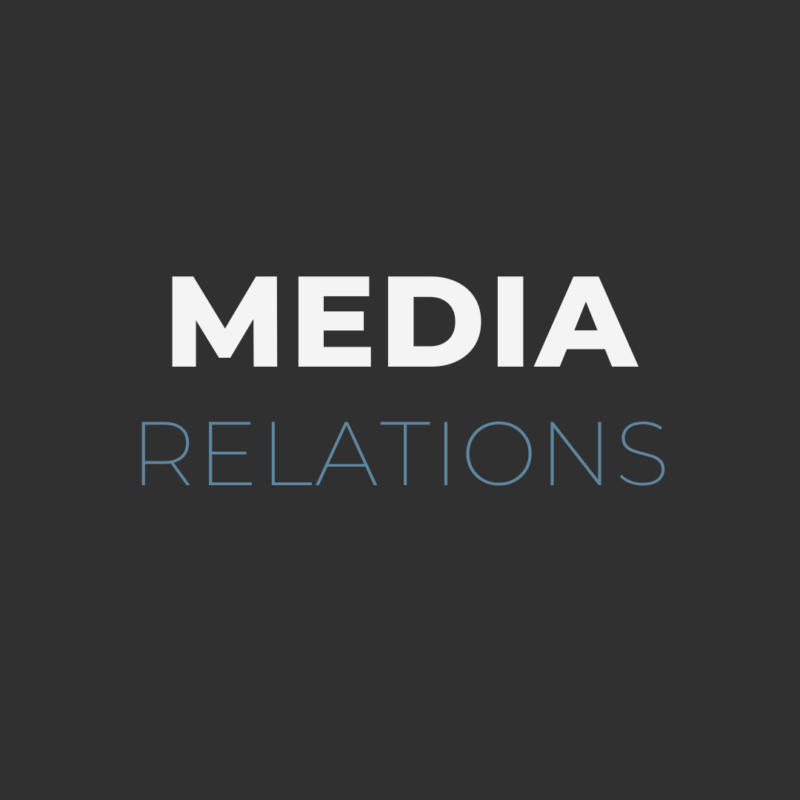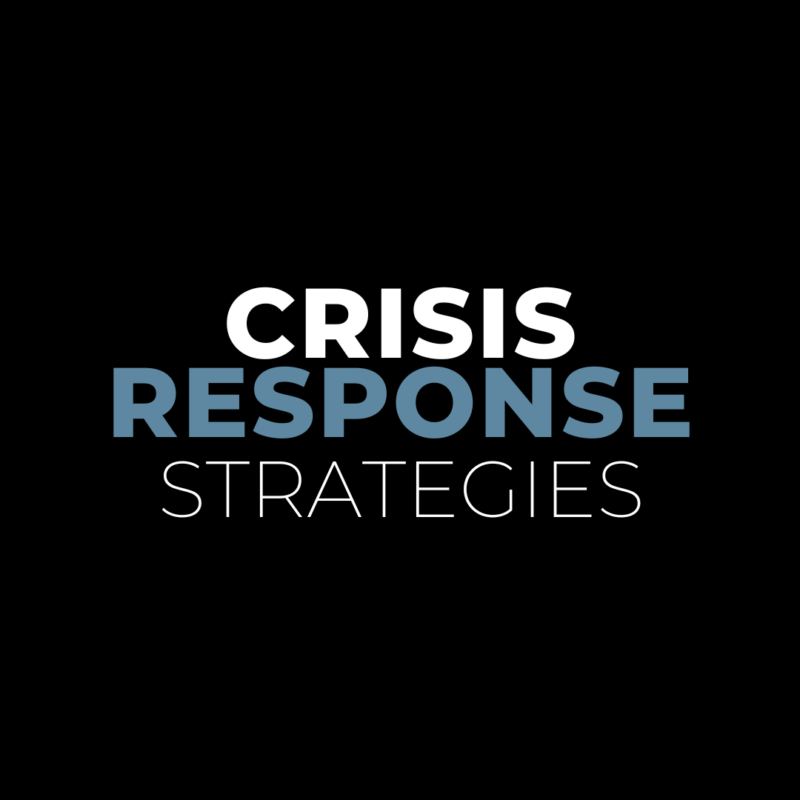Everyone’s a critic: three organizations that let bad reviews get the best of them
Everyone’s a critic.
With easily accessible review sites like Google Reviews, Yelp!, Glassdoor and several others at the tips of our fingers, it’s no surprise that frustrated people from all over the world are taking advantage of reviews on demand. With the relative ease customers have in voicing their opinions and experiences online, reputation management is crucial for companies. Every business could be one bad review away from a crisis, if not handled timely and properly.
Sure, some negative reviews are warranted, while some are random and may not even be legitimate. While you can’t control what people say about your business in review forums or social sites like Twitter and Facebook, you’re given opportunities to change the perception and conversation by participating in the dialogue. It’s all about taking steps in the right direction. Here are a few examples of the worst things that could happen if your organization doesn’t handle bad reviews properly.
United Breaks Guitars
Unless you’ve been living under a rock for the last few years, you probably heard about some of the major backlash that United Airlines faced due to poor choices made by the company. Fortunately, I’m not talking about this crazy crisis problem…yet. I’m talking about the review, or song rather, that started it all. I give you United Breaks Guitars.
In 2008, Dave Carroll was traveling with his band on a United Airlines flight from Chicago to Nebraska when he noticed the baggage handlers improperly handling luggage, even guitars. When he got to the baggage claim, he found that his $3,500 guitar was severely damaged. Because he filed the claim outside of United’s “standard 24-hour time frame,” he was ineligible for compensation. After nine months of deliberation and no progress, Carroll asked himself what Michael Moore would do had he been a songwriter, and naturally, was inspired to write and record his hit, “United Breaks Guitars.”
Since its posting, the video has reached more than 18.1 million views to date. After becoming a hit, media immediately started reporting its success, not to mention the humiliation United faced because of it. After this surge, customer service representatives from the company immediately began calling Carroll to apologize, even asking him if they could use the video as a tool for training purposes, and chocked it all up to a lesson learned.
Unfortunately, United took two steps forward and then 10 steps back. In 2017, video of a doctor being forcibly removed from a flight surfaced on all social platforms, causing #UnitedBreaksGuitars to start trending on social media once again and as Carroll once riffed, “You say that you’re changing and I hope you do, ‘Cause if you don’t then who would fly with you?”
#McDisaster
Back in the day, Mickey Dee’s ruled the fast-food roost. Everyone loved it and thought it was a great idea. A hamburger for a dollar? Don’t mind if I do! However, then came the question of how McDonald’s was able to keep serving mass quantities of food at such a cheap rate, thus “Super Size Me” was born. Morgan Spurlock’s 2004 documentary was perhaps the worst way for a company to get roasted… by becoming a case study. In this film, Spurlock decides to eat nothing but McDonald’s every day for a month to see the kind of effects it has on his body. And the results, while not shocking, are disturbing. By the end of the month, Spurlock felt fatigued, sick, depressed and had gained 25 pounds. You can’t hide from facts, folks.
Although this film did a number on McDonald’s in terms of reviews, the company still continued to sell millions of dollars worth of food to the U.S.– you just can’t beat paying a dollar for a hamburger, am I right? Then came infamous pot-stirrer, Twitter.
McDonald’s thought that it might give itself some good PR by creating a hashtag, #McDStories, where employees from around the world would share positive, heart-warming stories about their time at McDonald’s. However, the hashtag quickly became a bashtag, where ex-employees would use it to tell horror stories of their time working at McDonald’s. After hours of abuse, McDonald’s attempted to “take down” the hashtag, but the damage was already done. As we know, the internet never forgets. Talk about a #McFail.
Putting out the FYRE
One of the biggest fails to date, FYRE Festival was promised to be a luxurious VIP music festival hosted in the Caribbean. Organizer and all-around questionable human Billy McFarland hyped up his and Ja Rule’s creation of the FYRE app and FYRE Festival, which was to be hosted on “one of Pablo Escobar’s private islands,” Great Exuma.
The FYRE Fest promotional team did an awesome job at first– hiring top models and influencers to come take pictures on the island and post them to social media with the hashtag FYRE. The campaign was so successful that the two-weekend festival sold out. Although most of FYRE Festivals faults came from bad logistical planning, poor management and awful implementation, the real crisis can be viewed entirely through the social media lens.
The first thing people started to notice is that the social accounts would edit and use the same photos from the influencers first (and only) trip to the island to promote the festival. Instagrammers would leave comments on the posts about the same photos being used and the unresponsiveness of the festival’s planning team. Apparently, a lot of FYRE Festival potential attendees were left with thousands of dollars out of pocket and hardly any instructions on what to expect. The FYRE communications team decided it would be a good idea to just delete the comments instead of answer them.
Fishy? Absolutely! Despite this, festival time came around and people found their way to the island, but it only went downhill from there. Turns out Billy had run out of money, hands and time. The beach condos that people were promised turned out to be half-built tents on a rocky part of the island. The 5-star gourmet meal turned out to be cheese sandwiches and salad served in Styrofoam carry-out boxes. Needless to say, images of all of the mishaps began circulating throughout social media, eventually leading to global coverage of the disastrous event.
Eventually, Billy got sentenced to six years in prison for fraud. Ja Rule denies knowing anything about the mishaps, and thousands of people will never get their money back. Without social media and photo evidence of the complete disaster that was FYRE Festival, we might not have gotten to see firsthand just how much of a mess it turned out to be.
Lesson learned
Bad reviews, warranted or not, can seriously damage an organization’s reputation. However, it’s all about how you deal with those reviews that will define your company. My advice? Read, respond, reflect and relax.
- Read the reviews – don’t delete or ignore them. They won’t just go away.
- Respond in the best way you can. Sometimes, direct message is best or, better yet, personal contact.
- Reflect on the problem addressed in the review. How can you make sure that other people aren’t experiencing the same thing? How can you do things better next time around?
- Relax. Don’t let negative reviews define your organization. Take reviews as constructive criticism and use them to better your business!
To learn more about responding to reviews, read Whitney’s blog, How to respond to an unfavorable review vs. an untruthful review.



